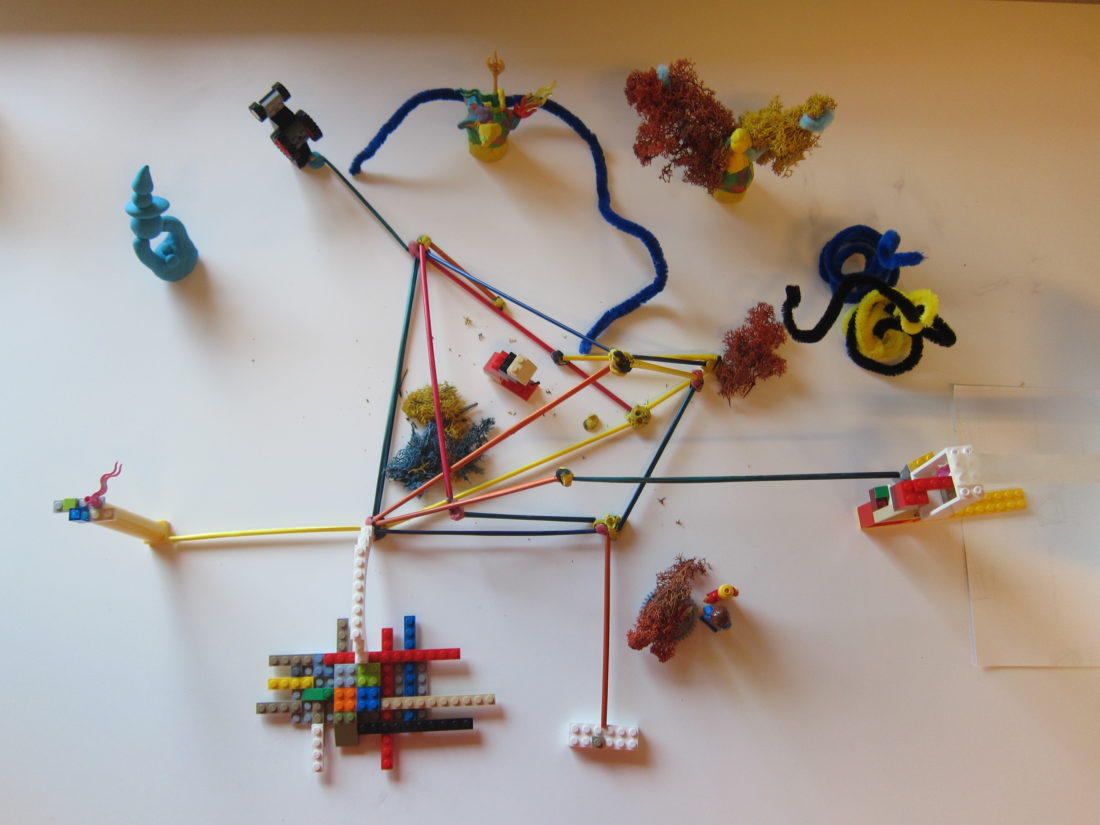
The Art of Prototyping
Many of us do pioneering work in the field of education. That means that often there is no proof of concept yet. We have to try out our ideas in experimental spaces. In pioneering fields prototyping is helpful, as it provides a language and framework to reframe uncertainty as opportunity for innovation and learning. Prototyping is exciting, because you’re testing an idea and exposing it to feedback, and you don’t know what this feedback will be. Prototyping is also a relief because it doesn’t have to be perfect: it’s okay to try again or to try something else.
As MoveMakers Learning Journey has also been a prototype in itself. Our project members Benjamin Kafka from Impuls and Diederik Bosscha from Dock20 share their perspectives on the art of prototyping illustrated by “Hack you Education” story. A longer article will be soon published in our book “Making New Moves in Education and Learning”.
What is Prototyping?
Prototyping is a practice in human-centred design and refers to the process of implementing an idea, without knowing how it will work out. It’s a way of innovating, a “try it and see” approach, where you don’t have to be wedded to the outcome – it is the experimental phase. Prototyping is an iterative process of acting, noticing and reflecting on the feedback, designing a next action, and acting again.
Think of prototypes as opposed to pilot projects. This is a small, but critical mindset difference. Whereas the quality of a pilot projects is measured by its closeness to a ‘final product’, the value of a prototype is defined by its contribution to a learning process. This should also make clear why prototyping is more of a mindset change than a ‘tool’.
Wanting to ‘get it right’ is deeply engrained in our cultural DNA. We are so keen on finding the right way or the right answer that this shift in mindset can be very challenging to make – especially for adult learners. We have practiced this way of learning and doing things for most of our lives – or even for centuries, if you consider our various collective entities. How might this shift? It’s a practice! The more you prototype, the better you become.
What principles can help you in prototyping?
Our intention is not to provide a recipe book, but to ground this section in Robert Chamber’s wise advice for participatory workshops: “use your own best judgement at all times”¹. So, don’t let yourself be distracted by the following ideas but rather see them as the beginning of a brainstorming session!
Here are some basic principles to support your prototypes:
* Create a container – a protective space that will support the process. What environment might be most conducive to prototyping?
* Make failure your friend – can you locally create conditions where failing is allowed, or even encouraged? How might you do so? For instance, try celebrating failures. Call attention to them and ask for applause. Maybe this can break or at least dent the failure mindset?
* Cultivate a beginner’s mind. This is hard, especially if you’re not a beginner! Ask yourself “how else might I do this?” or ask for ideas from people who really are beginners in whatever you are doing. Notice where your mind gets hooked. Ask yourself “what’s right about this?”
* Notice and work deliberately with energy shifts. When are you in a brainstorming mode? When is playfulness required? When is a ‘getting it done now’ attitude required? Make use of “state change”, by for example shifting from working in small groups sitting down, to rotating around flipcharts standing up, to working in silence, followed by 1:1 conversation, or a group conversation. Various ways of interacting with the environment and process keeps the brain interested, stimulated and learning.
Use the secrets of improvisation: One of the basic principles In improvisation theatre is the ‘yes, and…’ principle. Practice it! Whenever you feel you want to say ‘yes, but…’, try to genuinely build on the idea you were going to reject!
1 This is one of the things that Robert says again and again in his workshops – and of course you can also find this in his books, e.g. here: Robert Chambers (2008) Revolutions in Development Inquiry. London, UK: Earthscan. Pp 100.

